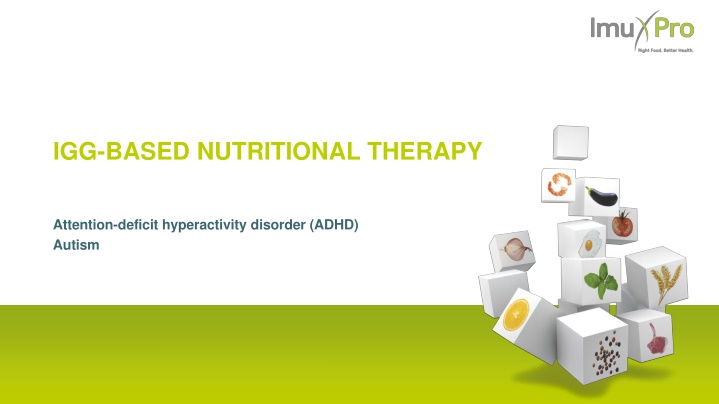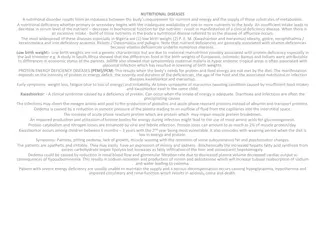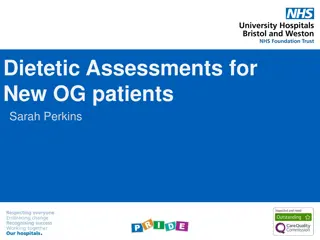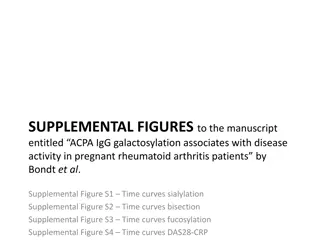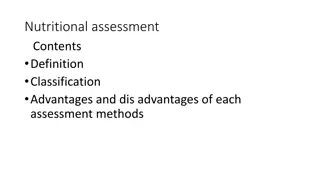IGG-BASED NUTRITIONAL THERAPY
Elevated levels of proinflammatory markers, dyslipidemia, hyperglycemia, and insulin resistance, along with the consumption of a Western-style diet, can contribute to increased intestinal permeability. This can lead to immune responses triggered by food proteins slipping through damaged intestinal cells, ultimately causing low-grade inflammatory conditions. The measurement of food-specific IgG antibodies serves as a strategy to identify incompatible foods and components, potentially guiding the implementation of time-restricted elimination diets. Nutritional medicine is gaining recognition in psychiatry by influencing immune function, systemic inflammatory processes, and gut permeability. Studies show a link between diet and mental health, with healthy eating habits reducing the risk of depression. Additionally, diet can impact the development of brain disorders. Understanding these connections underscores the importance of nutrition in managing various conditions.
Download Presentation

Please find below an Image/Link to download the presentation.
The content on the website is provided AS IS for your information and personal use only. It may not be sold, licensed, or shared on other websites without obtaining consent from the author.If you encounter any issues during the download, it is possible that the publisher has removed the file from their server.
You are allowed to download the files provided on this website for personal or commercial use, subject to the condition that they are used lawfully. All files are the property of their respective owners.
The content on the website is provided AS IS for your information and personal use only. It may not be sold, licensed, or shared on other websites without obtaining consent from the author.
E N D
Presentation Transcript
IGG-BASED NUTRITIONAL THERAPY Attention-deficit hyperactivity disorder (ADHD) Autism
IGG AND INCREASED INTESTINAL PERMEABILITY Elevated levels of proinflammatory markers, dyslipidemia, hyperglycemia, insulin resistance, obesity, advanced disease severity, comorbidity and the consumption of a Western-style diet can be risk factors for altered intestinal integrity. The risk of intestinal permeability increases when coupled with multiple disease states or combined with other environmental risk factors. Food proteins (or degraded food proteins) can slip between damaged intestinal cells and enter the bloodstream, where they can trigger immune response and the production of specific IgG antibodies against them. These antibodies and the food antigens form immune complexes which can adhere to organs and tissues. When the immune complexes are destroyed by phagocytic cells and the complement system, the surrounding tissues can be damaged. This leads to low-grade inflammatory conditions which can become chronic. The symptoms are delayed. 18/02/2025 2
IGG AND INCREASED INTESTINAL PERMEABILITY The measurement of food-specific IgG antibodies is used as a strategy to identify incompatible food and food components. The results of the test do not make a diagnostic statement, but can often be used as a starting point for a time-restricted elimination diet, depending on the reactivity to individual foods. At present, such tests are gaining more and more recognition, and an increasing number of clinical studies have been published in recent years in international medical journals. The effectiveness of this approach (symptom and quality of life improvement) has been demonstrated in various diseases. 18/02/2025 3
NUTRITIONAL MEDICINE AS A NEW MAINSTREAM IN PSYCHIATRY? Diet has an influence on immune function, systemic inflammatory processes and gut permeability. A recent publication by the International Society of Nutrition and Psychiatry suggests that nutrition is as important in psychiatry as it is in cardiology, endocrinology and gastroenterology (Sarris et al. 2015, Lancet Psychatry 2, 271-274). Dietary habits modulate the function of the immune system, thereby reducing the risk of depression (Berk et al. 2013). In children and adolescents, a link between an unhealthy diet and poor mental health has been demonstrated. (O Neil et al., 2014). Epidemiological studies have shown the link between healthy eating habits and a reduced prevalence or risk of depression (Lai et al., 2014, Psaltopoulou et al., 2013) and suicides (Nanri et al., 2013). The European PREDIMED study, a strong trend was demonstrated towards a reduced incidence of depression in subjects following a Mediterranean diet enriched with nuts. This protective effect was particularly observed in patients with type 2 diabetes. 18/02/2025 4
IGG AND DEVELOPMENTAL / BRAIN DISORDERS Diet has an impact on immune function, systemic inflammatory processes and gut permeability. The gliadin-mediated overproduction of zonulin causes a loosening of the tight junction connections in the intestinal epithelium, which is accompanied by an increased permeability of the intestinal wall ("leaky good"). Larger molecules, which are normally retained in the intestine, can enter the bloodstream and induce IgG-mediated food intolerances. This leads to an increased immune response associated with the release of proinflammatory cytokines, which in turn can lead to the development of depressive symptoms. (Karakula-Juchnowicz et al. 2014) Emerging new explanation for the pathogenesis of mental disorders? combination of systemic inflammatory processes, IgG-dependent food sensitivity and leaky gut. In depressed patients, it is advisable to determine specific IgG titers for selected foods. At the same time, intestinal permeability should also be assessed. 18/02/2025 5
IGG AND ATTENTION-DEFICIT HYPERACTIVITY DISORDER Effects of a restricted elimination diet on the behavior of children with attention-deficit hyperactivity disorder (INCA study): a randomized controlled trial (100 children with ADHD) Pelsser et al. 2011. Lancet, 377: 494 503. Study design IgG Diet group 50 children with ADHD 5-week IgG elimination diet (= phase 1) Clinical responders (30 children with at least 40% symptom improvement) proceeded with a 4-week food challenge phase (= phase 2), in which either strongly reactive or hardly reactive foods (classified on the basis of every child s individual IgG test results) were reintroduced Control group "healthy nutrition - 50 children with ADHD Results Phase 1 Phase 2 5-week IgG elimination diet lead to improvement of the ADHD rating score by 23.7 points (average) Reintroduction of strongly or hardly reactive food Worsening of the ADHD rating score by 20.8 points Worsening of ADHD symptoms in 16 out of 30 children, regardless of whether the reintroduced foods were strong or weakly reactive. Conclusion A restricted elimination diet had a significant beneficial effect on ADHD symptoms in 32 of 50 children with ADHD (64 %). The restriction diet reduced both ADHD and oppositional defiant disorder symptoms. 18/02/2025 6
IGG AND AUTISM Increased concentrations of IgG antibodies against gliadin (gluten component) and casein (most important milk protein) were found in 162 autistic children, compared to healthy children. Intestinal permeability was increased in 26% of sick children; this was observed in only 2% of healthy children de Magistris, L. et al. 2013. Biomed Res. Int. 2013, 1-11 In 7 children with autistic disorders, increased IgG antibody titres against casein, protein, egg yolk and peanuts were found, together with other laboratory parameters that were out of range (essential fatty acids, manganese, detoxifixation markers) Esparham et al. 2015. Integr. Med., 14: 40-53 Children with autistic disorders had elevated IgG concentrations against the fungus Candida albicans Hughes et al. 2018. Front. Psychiatr. 9 Plasma concentrations of IgG antibodies against the milk proteins alpha-lactalbumin, beta-lactoglobulin and casein were significantly higher in autistic children than in their healthy siblings Trajkovski. 2008 Focus Autism Other Dev. Disabl, 23: 176-185 18/02/2025 7
